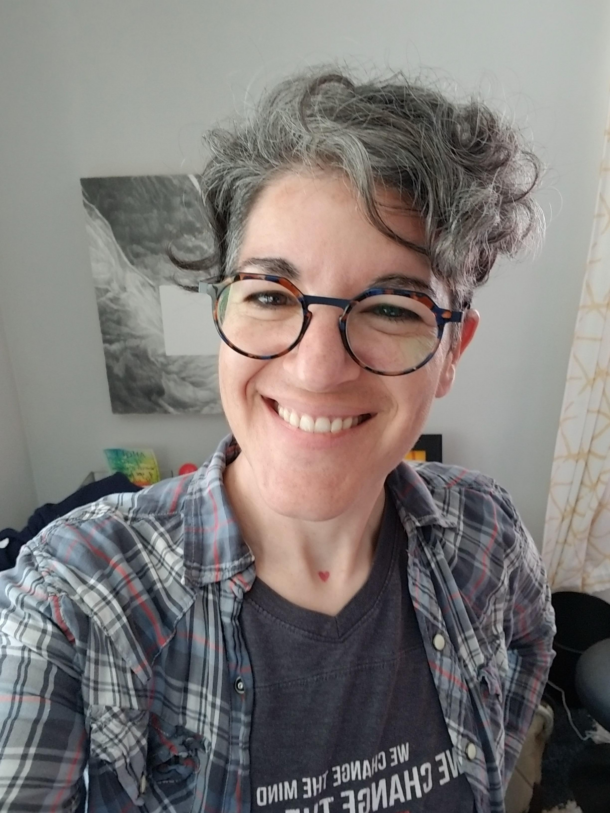“…sometimes, all we have to do is shift our attention and shift the light and allow for these people with powerful, strong voices and stories and solutions to speak for themselves.”
America Ferrera, actress, producer, activist, said this during a recent On Being interview. She was referring to the way she’s able to take the spotlight she’s gained through her acting career and use it to highlight the voices of others, of the less heard, of those who struggle for recognition due to their geography or ethnicity or poverty.
This past week, Kate Spade and Anthony Bourdain used their spotlights, too, though if I were a betting woman, I’d say they weren’t able to see clearly enough through the suffocating fog of depression to recognize that their spotlights were in the mix.
When I told Theresa of Bourdain’s death, she asked what happened and all I could think was: The same thing happened that always happens with suicide – he struggled with depression and, this time, depression got the upper hand. Brutally.
Last week, these two celebrities shone their spotlights on the egalitarianism of depression by taking their own lives.
Last week, over 800 other Americans did the same, based on the statistics I found from a few years ago.
Last week, roughly 10,000 Americans visited hospitals to be treated for suicide attempts that were the best kind of failures.
Last week, it’s possible that up to 10,000 more Americans made attempts but didn’t seek care that we could wrap numbers around.
I don’t have worldwide statistics but we can imagine and feel the reach of depression’s long arm.
Let’s be clear on one thing here: Looking for solutions is far different than looking for excuses. When a person is diagnosed with lung cancer, people ask, “Did she smoke?” as though it justifies a person having this terrible disease, as though it inoculates the non-smoker from the same.
Kate Spade and Anthony Bourdain didn’t die last week because they weren’t grateful for their money or celebrity, or because they mistakenly thought those professional successes would cure their depression. They didn’t die last week because they didn’t have good support at home or because they were weak or because they didn’t try hard enough to curb this terrible disease.
They died because we all tend to make the best decisions we can with the options we think we have at the time; depression can make us myopic to the point that it can convince us – truly and deeply convince us – that the only remaining options are such a bleak, endless suffering that we can’t help but also pull down those we love, or the respite of death.
If you’ve also struggled with depression and suicidal thoughts, you know exactly what I mean.
If you continue to struggle with depression and suicidal thoughts, please know that these are not real options, this is not good information.
You aren’t alone or broken or bad, no matter what depression might try to convince you.
The truth is, you are valuable, you would be missed, you are needed on this world, in this life, for the good of all of us. You are courageous enough to do this for another day, and another day after that.
What I wouldn’t give to have a solution to offer you, or at least a salve to mute your pain.
What I can give you is the number for the National Suicide Prevention Lifeline (which also has a chat): 1.800.273.8255. It’s open 24/7 and staffed by people who truly, deeply care.
I can give you reassurance that it gets better from the perspective of someone who hasn’t had a suicide plan in over 20 years.
